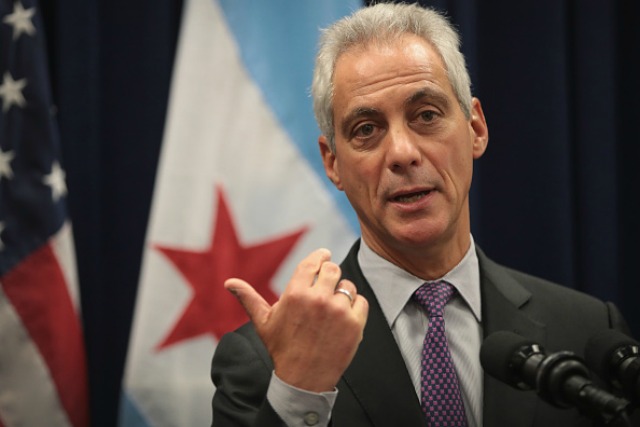ACLU Is Not At All Happy With Rahm's Reversal On Police Reform
By Stephen Gossett in News on Jun 7, 2017 8:30PM

Getty Images / Photo: Scott Olson
Mayor Rahm Emanuel buried the announcement last Friday afternoon in the end-of-week news dump that his administration had backed away from pushing a consent decree, which would provide court oversight to recommended reforms of the Chicago Police Department. The timing was a sure sign that they knew the development would not be met well by reform advocates. They were right. On Wednesday afternoon, the American Civil Liberties was the most recent group to blast the mayor's decision to instead seek an "independent monitor."
That monitor would be chosen by the City of Chicago and the Department of Justice. Such a monitor would not have the authority to make the Chicago Police Department permit investigation, administer reform timelines, or "dedicate resources to reform" the ACLU argued on Wednesday.
"This proposal is a non-starter for anyone committed to real reform of Chicago's broken system of policing," said Karen Sheley, Director of the ACLU of Illinois Police Practices Project, in a statement. "The City is proposing to sign a set of promises with a DOJ that is hostile to real police reform."
"Worse still, such an agreement could not be enforced by the monitor, by the community or by anyone else—since it is not planned to be overseen by a federal court," added Sheley.
The administration has not commented about where the recent decision to pull back from a consent decree originated, but it's possible that the mayor's office feels that its hand was forced. Attorney General Jeff Session in April ordered a wide-ranging review of federal agreements, including potential consent decrees. Any chance of the DOJ and the Trump administration agreeing to such a path seemed even more unlikely than it had up to that point. Rahm, in a joint statement with CPD Supt. Eddie Johnson, replied to Sessions' memo saying, "Reform is in our self-interest and that is why Chicago has been, is, and always will be committed to reform."
Still, some hope existed for the possibility of oversight from federal judiciary. The Tribune notes that legal experts maintain the mayor "could still partner with community groups" to set up oversight from a federal judge. And the possibility of a lawsuit aiming to require the administration to negotiate a consent decree exits. An ACLU spokesperson on Wednesday said that no final decision had yet been reached as whether the organization would pursue such litigation.
In the wake of the release of the Laquan McDonald shooting video, the Department of Justice, then under the Obama administration, launched what proved to be a yearlong investigation into the Chicago Police Department. The probe culminated in January, when the Department released its damning report, finding that the Department engaged in a pattern or practice of using force—including use of deadly force—that violated the Fourth Amendment. Advocates have argued that the best way to enforce the DOJ's recommendations is via a court-enforced consent decree.